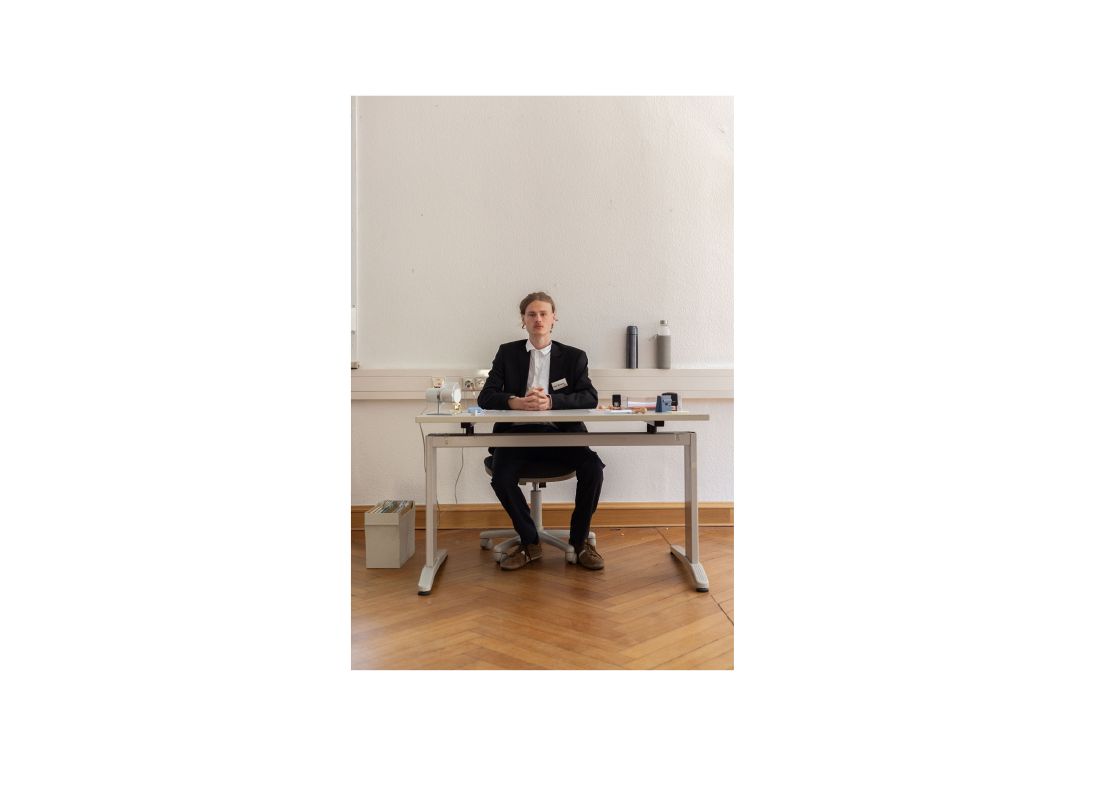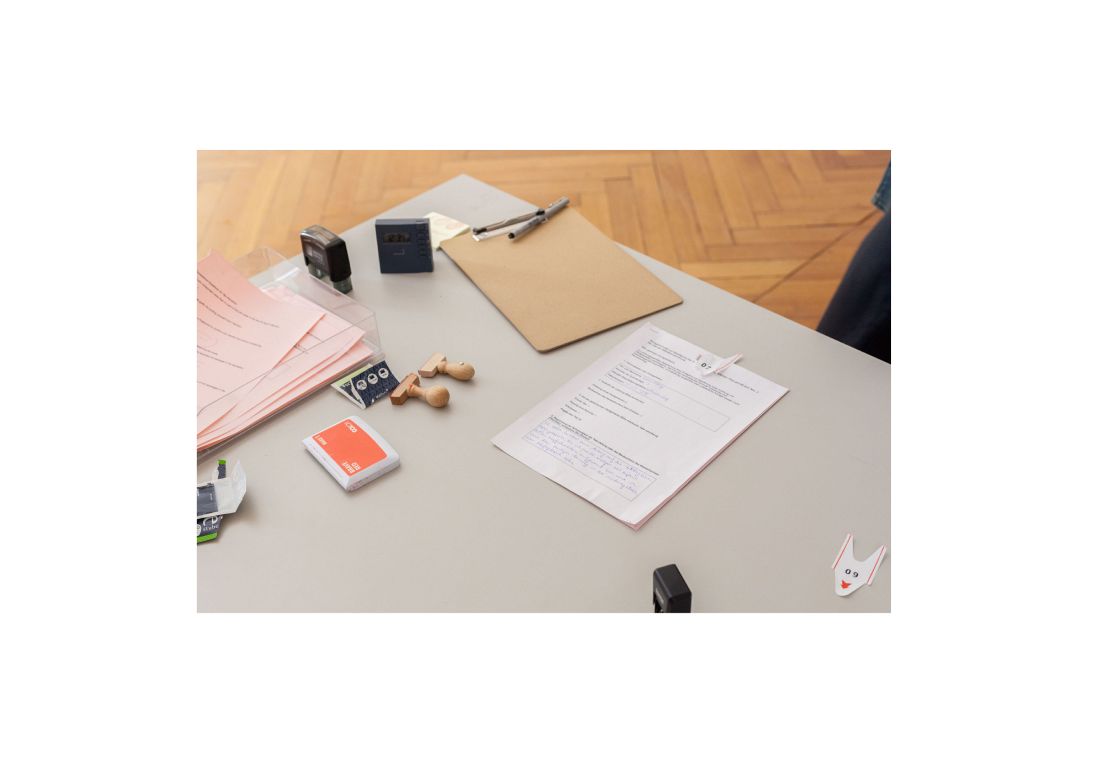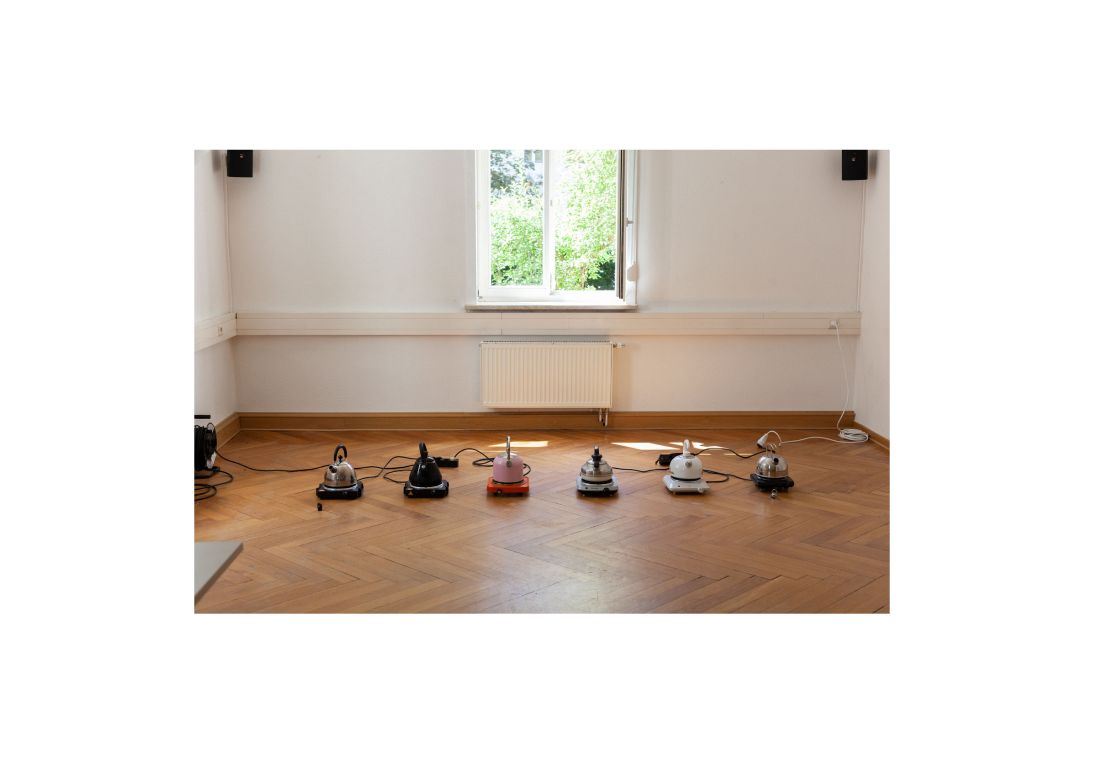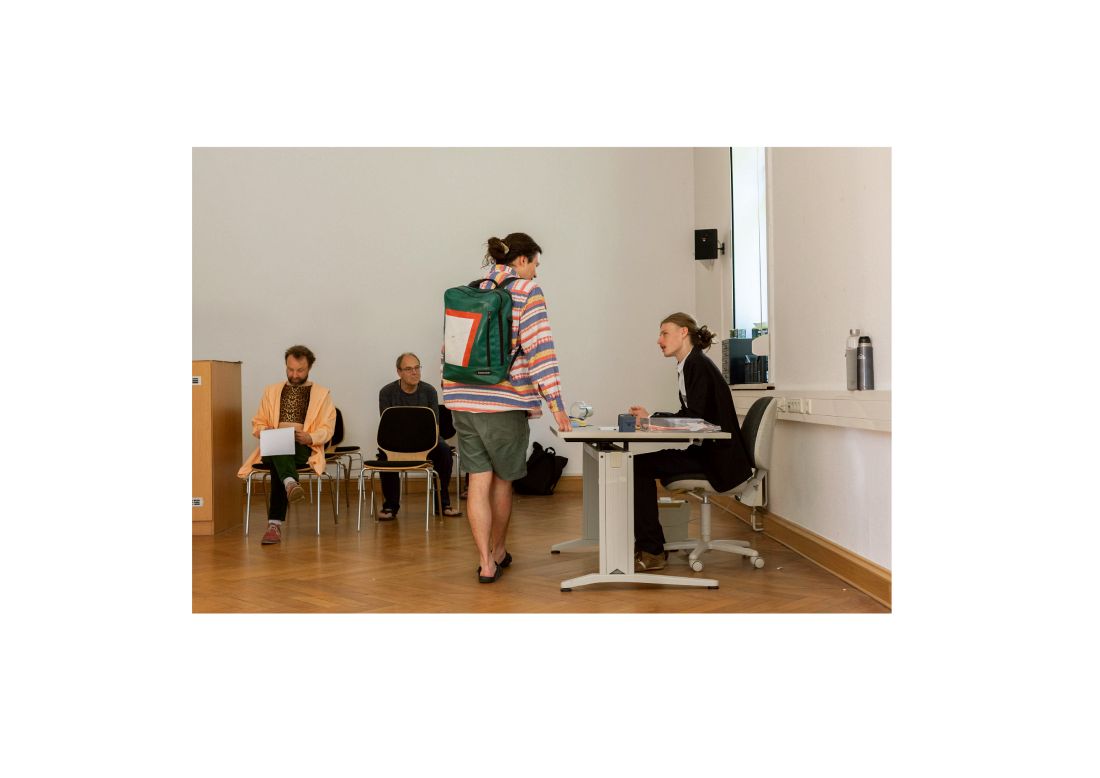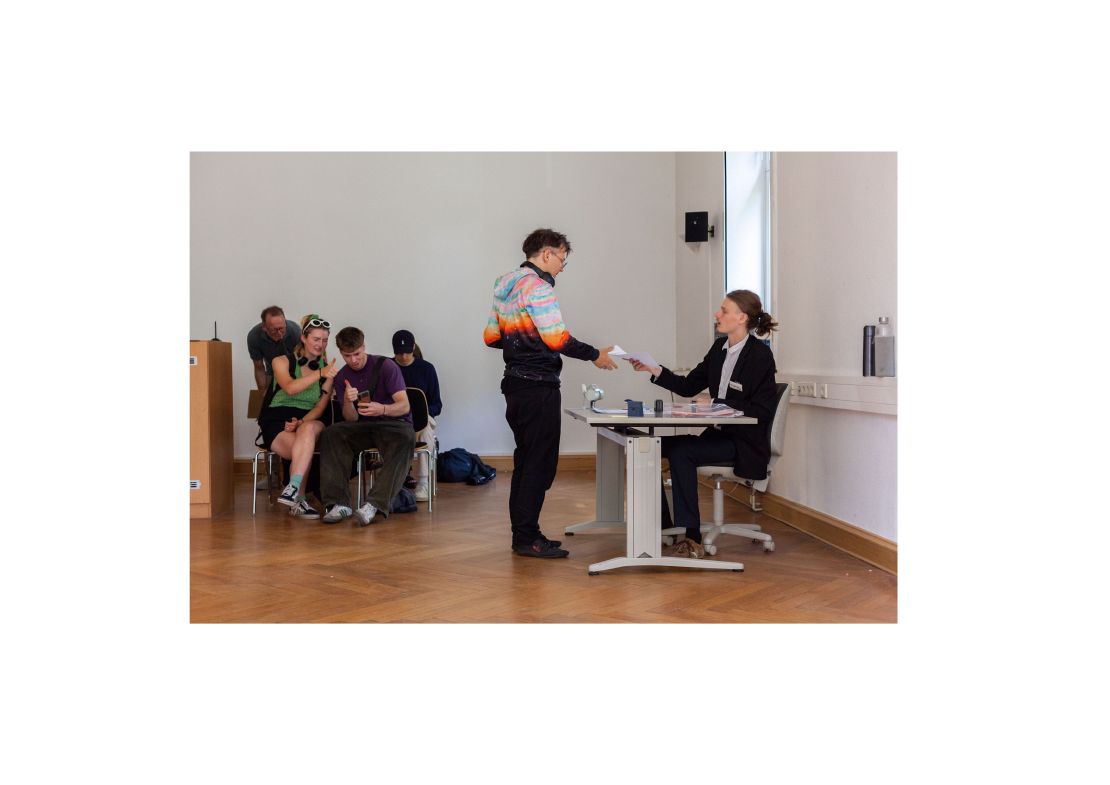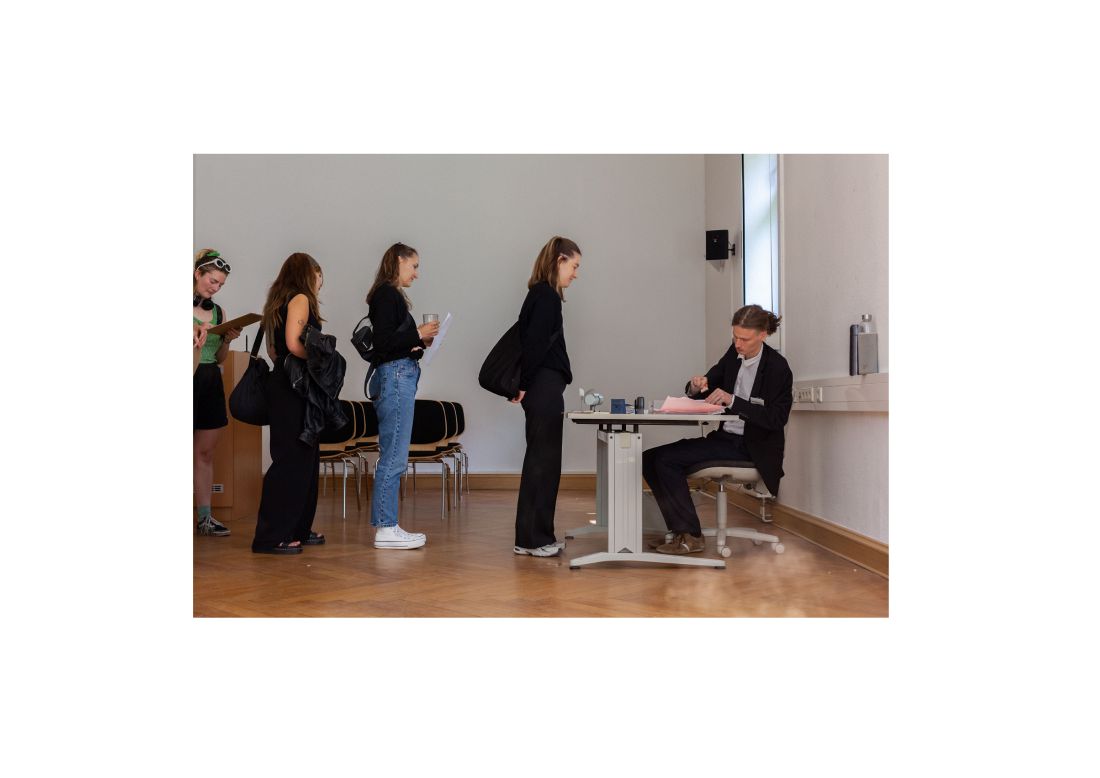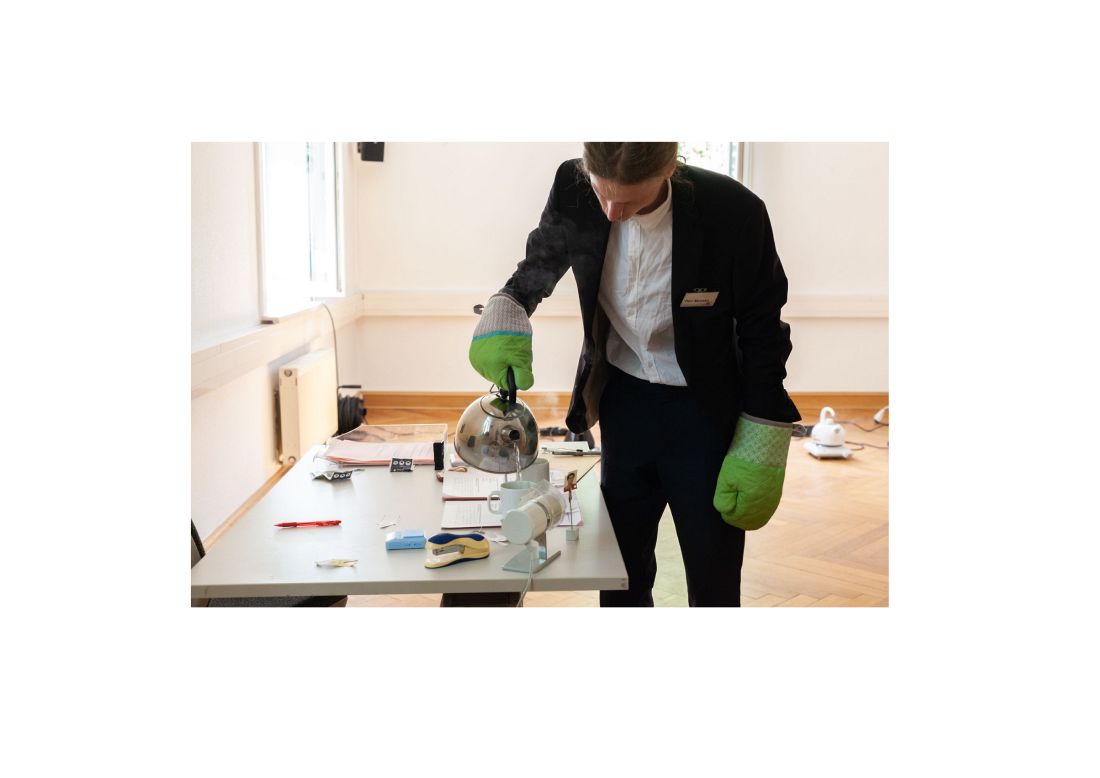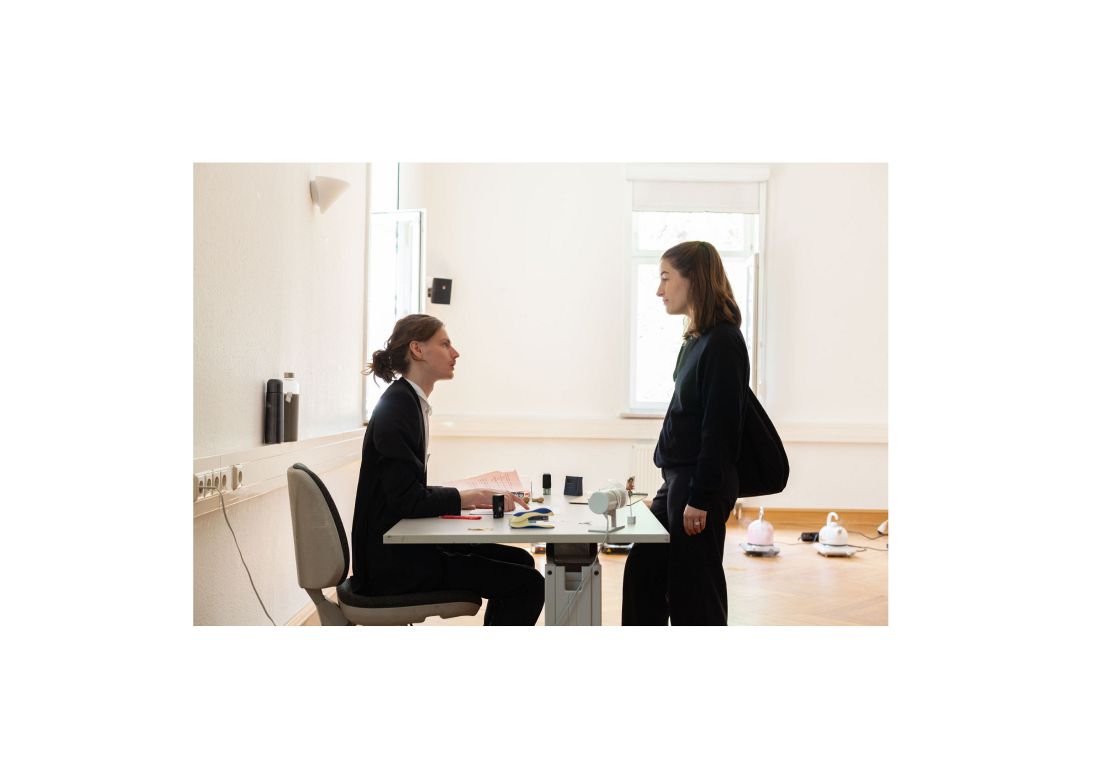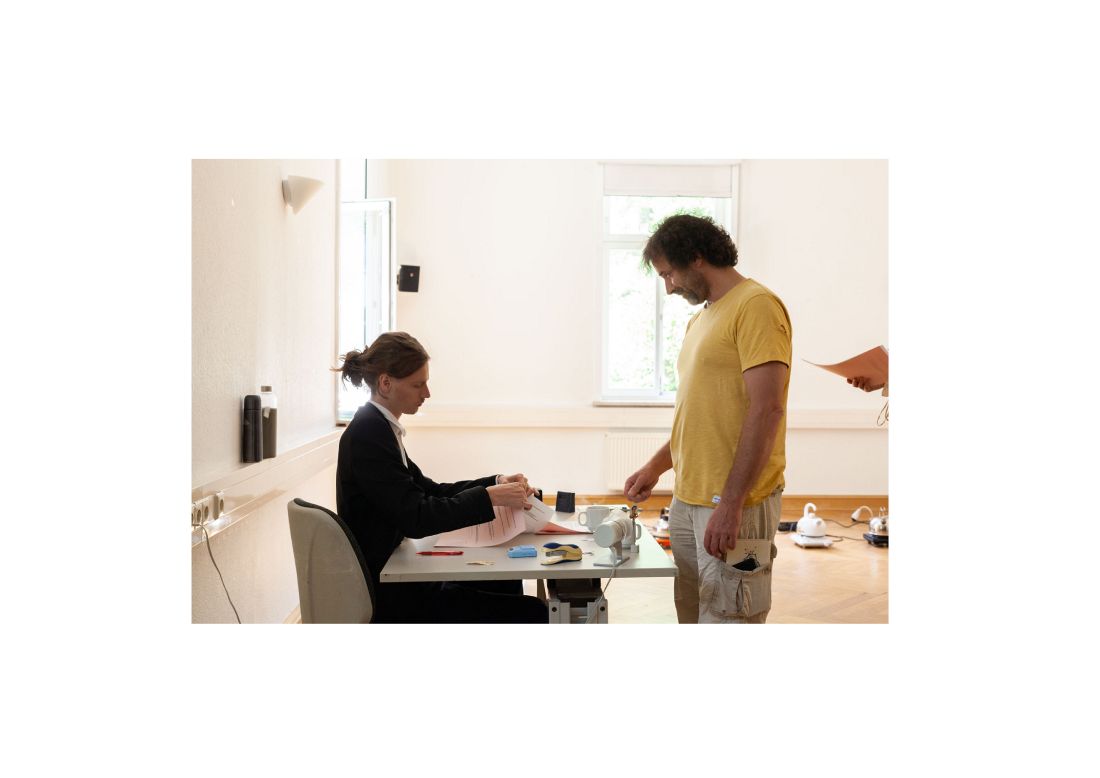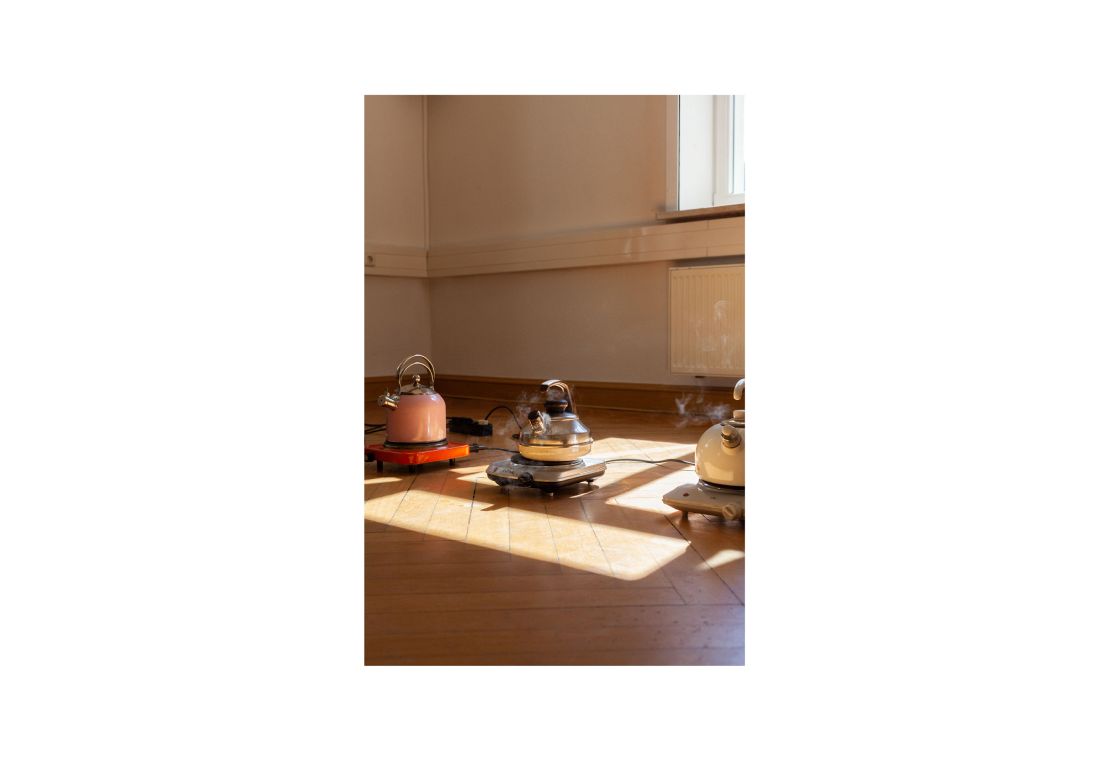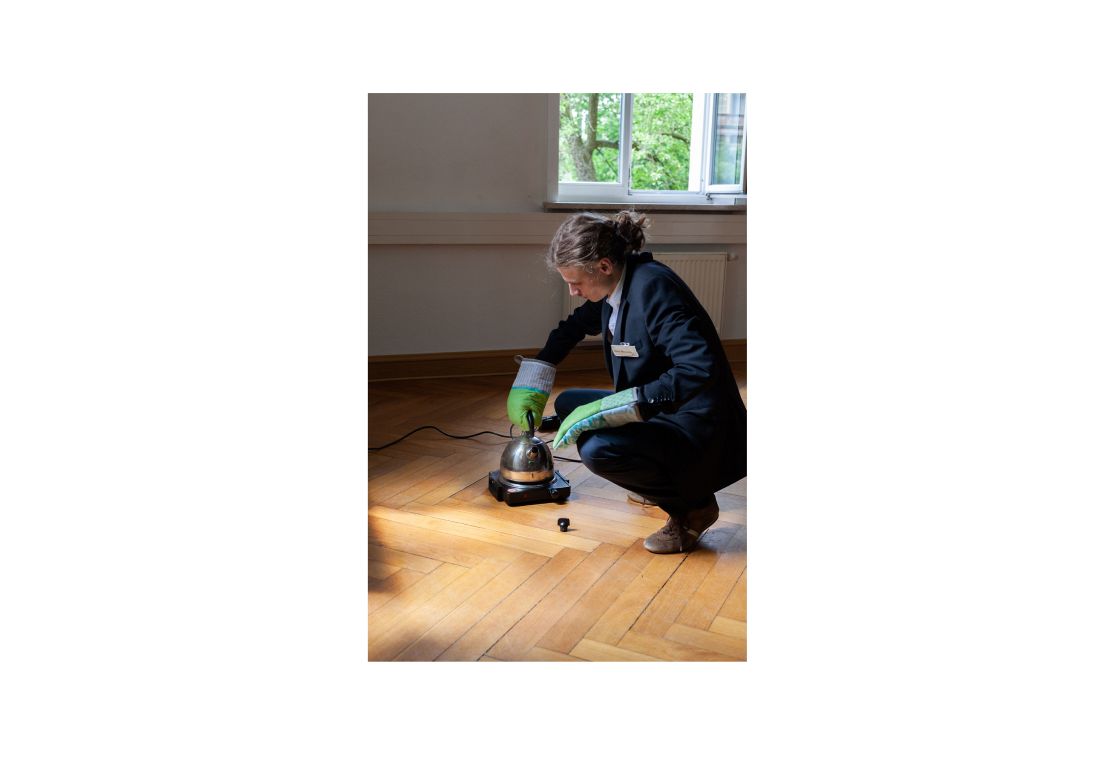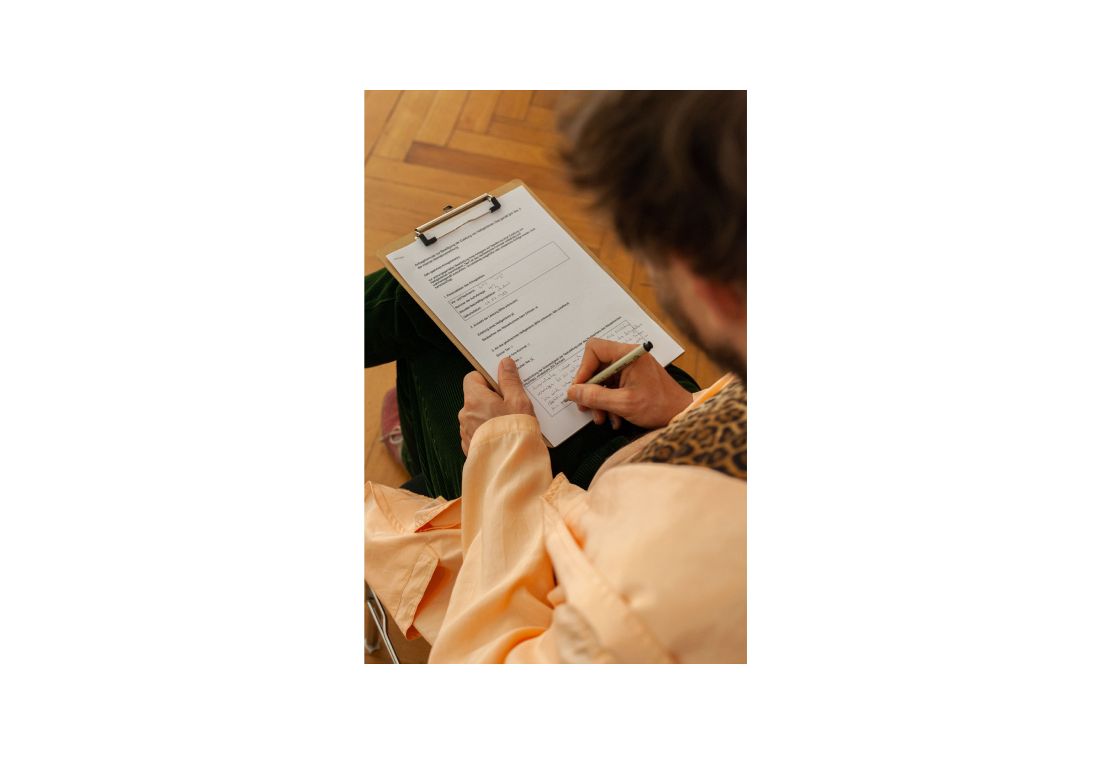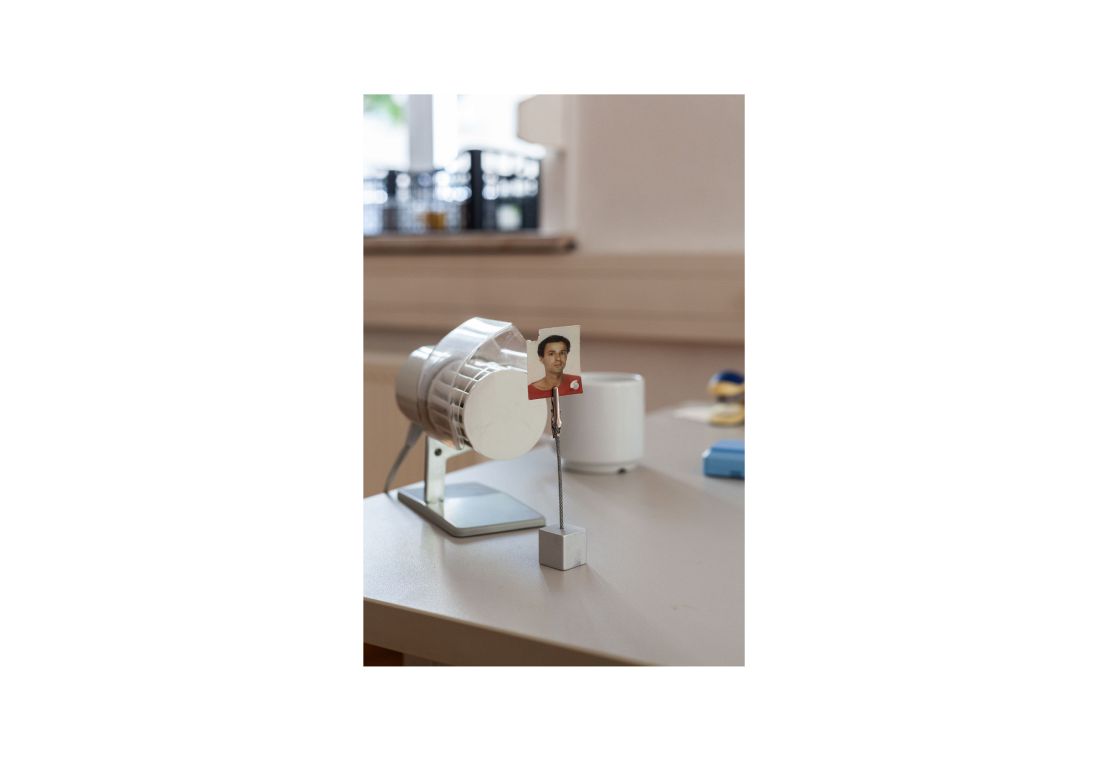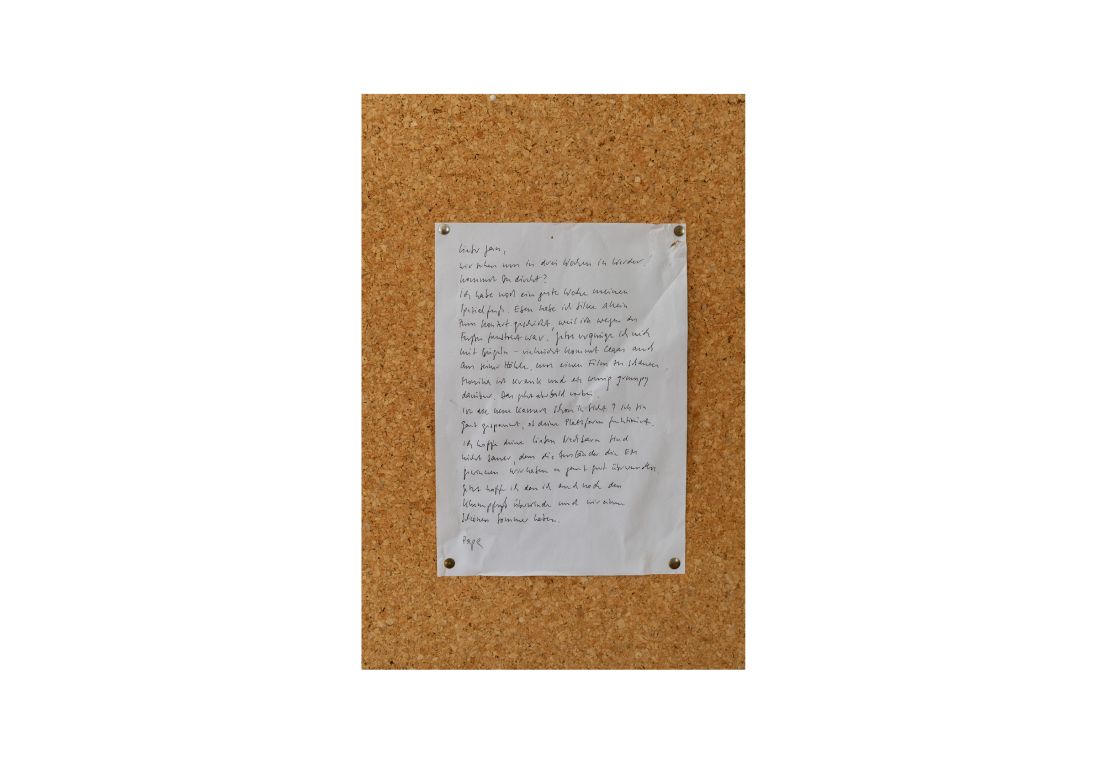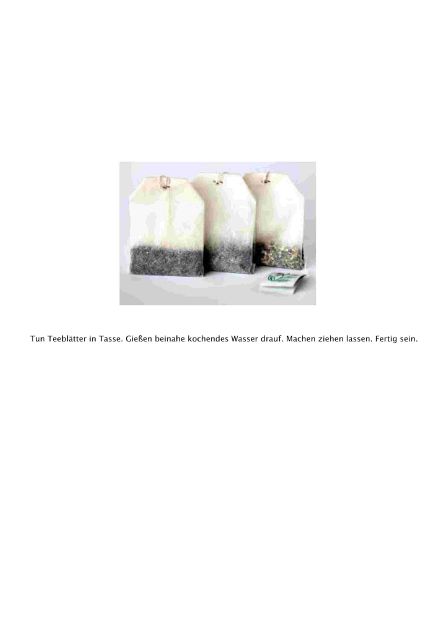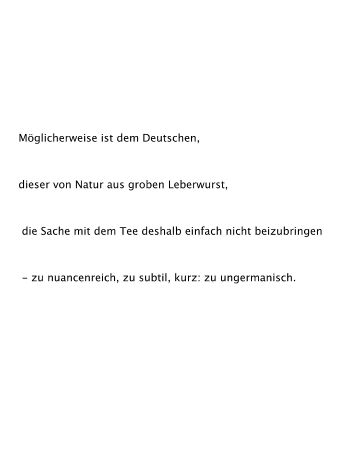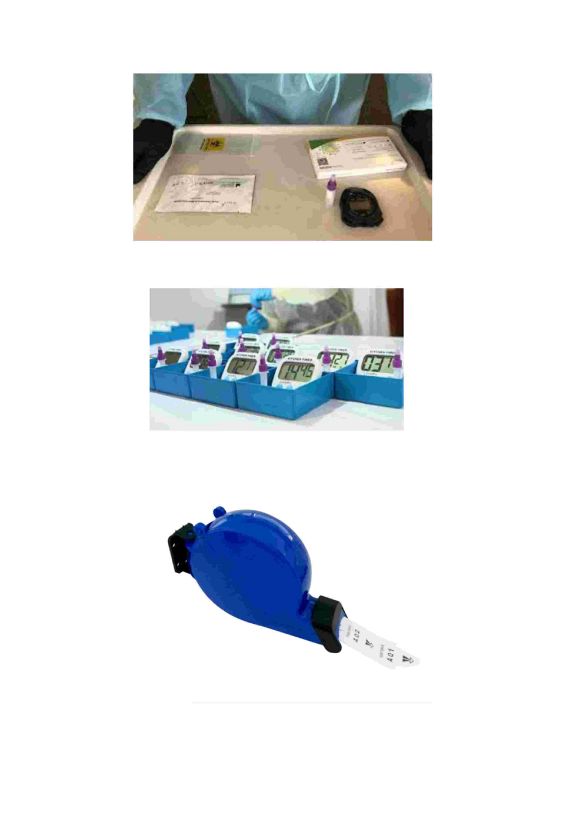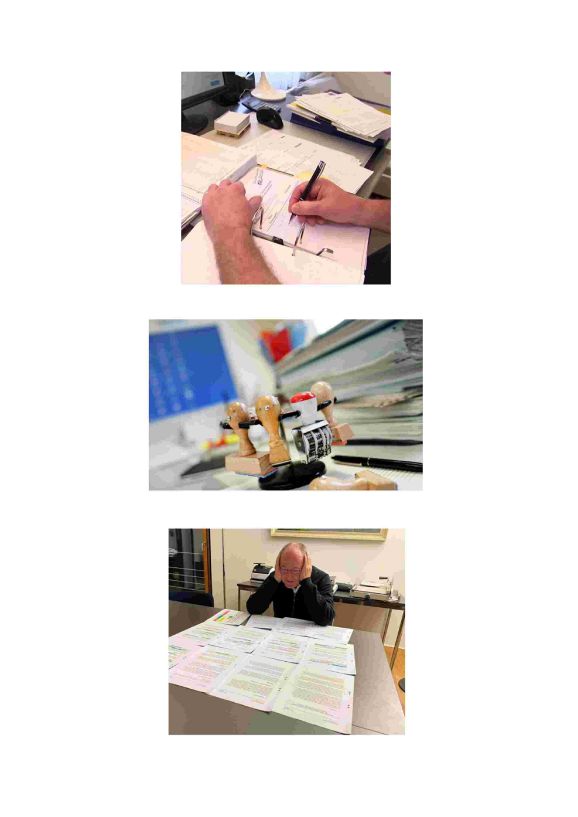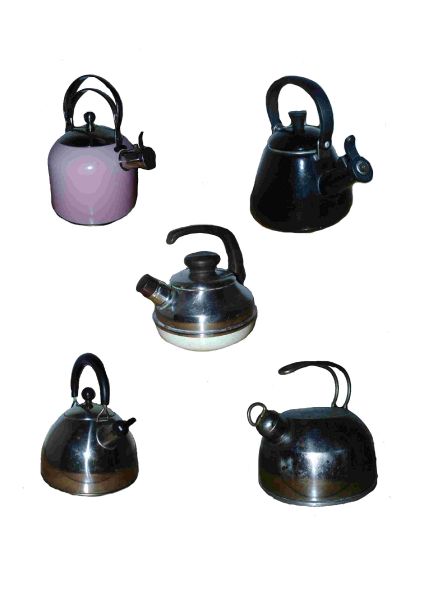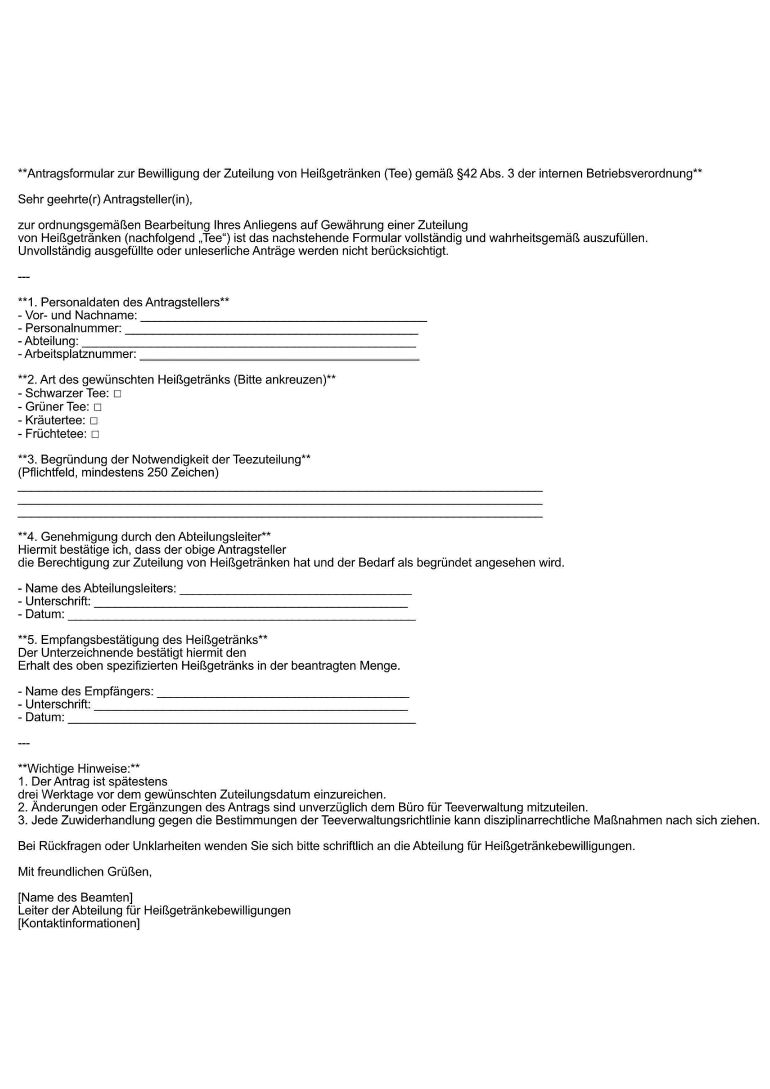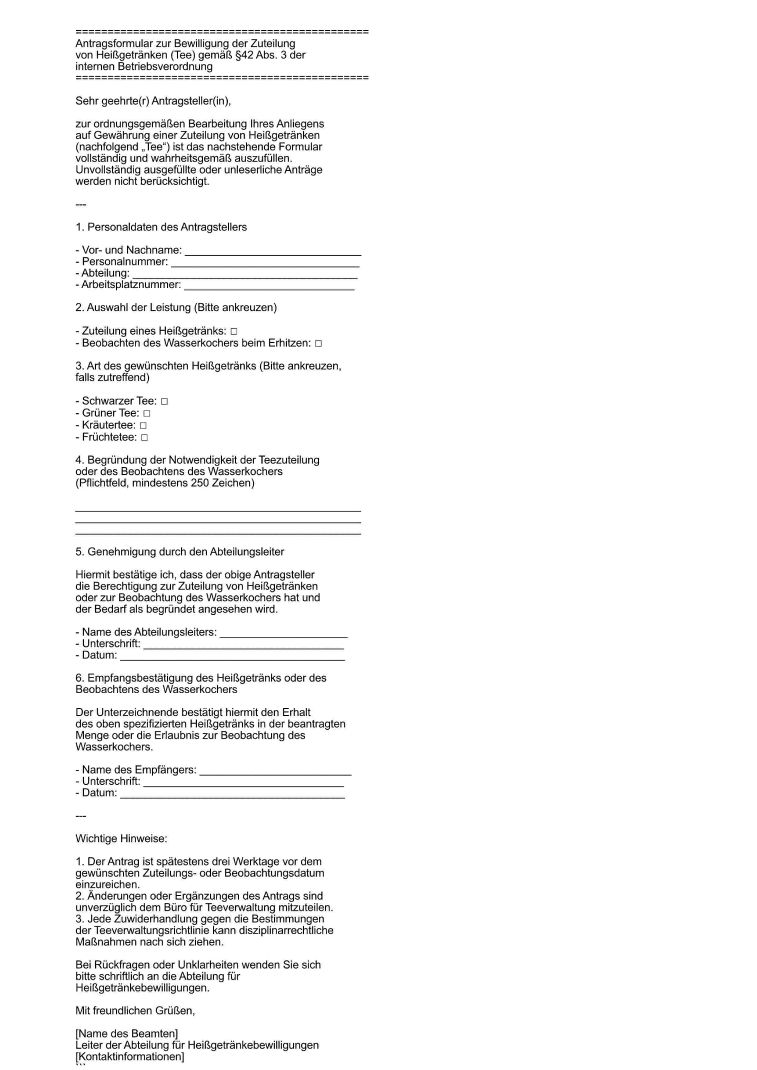Jan Munske (talk | contribs) No edit summary |
Jan Munske (talk | contribs) No edit summary |
||
| (7 intermediate revisions by the same user not shown) | |||
| Line 1: | Line 1: | ||
Überkochen | |||
Creation Period: January - July 2024 | |||
Performance Installation Date: July 13, 2024, 12:00-18:00 | |||
The performance installation "Überkochen" uses bureaucracy as a framework to showcase the power and pressure of the kettles, inviting participants to engage with and reflect on this intense process. | |||
Work Description: | |||
The project "Überkochen" began with a memory of the parental kitchen, where a black whistling kettle always stood on the stove. The routine of boiling water involved filling the kettle carelessly, placing it on the stove, turning up the heat, and then attending to other tasks. However, the kettle itself underwent an intense process: a slight cracking of the heating metal, rising steam, groaning under pressure, and finally, the loud whistle announcing the boiling water. This routine, often accompanied by a sprint to the kitchen to remove the kettle in time, left a lasting impression of the kettle's lively, almost human quality. | |||
This fascination led to the collection of used kettles that had already lived a "life." These kettles were set up and heated. The pressure in the kettle rises, and they begin to whistle. By making the pressure process visible, the room was characterized and defined by the pressure of the kettles. | |||
Frustration arose when observers found the kettles aesthetically pleasing but were unwilling to engage with the process for long. The attempt to escape the pressure and whistling of the kettles led to a new approach: a bureaucratic process that forced observers to face the boiling kettles. | |||
A bureaucratic process was introduced, inspired by the work of the artist's father in the German bureaucracy. Observers can take a number and apply for a hot beverage. | |||
„Überkochen" examines the paradoxical nature of bureaucratic processes, where officials, meant to be helpers of the state, often seem unhelpful. This is demonstrated through the ritual of tea preparation. In this performance, the preparation is distinctly German, involving tea bags, cups, and hot water. Despite the lengthy bureaucratic procedure, the applicant eventually receives a cup of tea. This act underscores the tension between the promised assistance and the burdensome reality of bureaucracy, highlighting how help can sometimes feel more like an obligation than a service. | |||
Mr. Munske, the official in the room, instructs participants to take a number. He asks if they would like to apply for a hot beverage and whether they need an English or German form. He explains the form, assigns a place to the applicant, and processes the applications. | |||
Mr. Munske corrects the applicants, cleans tea cups, drinks coffee, and removes tea bags from the packets. He reads the applications, fills water in the kettles, and checks the strength of a table fan. | |||
He pours boiling water on the tea bags, stamps and approves the applications, dates the forms, and uses a red pen. Mr. Munske waits, takes fingerprints, runs his fingers over hanging files, and answers process-relevant questions. | |||
He takes a lunch break, adjusts the temperature of individual hot plates, puts on oven mitts, and carries kettles through the crowd. Throughout, he diligently performs his duties. | |||
This process is deliberately prolonged and requires patience. | |||
Results of the Bureaucratic Process: | |||
- 75 approved and processed applications | |||
- 8 disapproved, invalid applications | |||
[[File:Fotos Überkochen wiki 1.jpg|center|thumb|1110x1110px]] | |||
[[File:Fotos Überkochen wiki 2.jpg|center|thumb|1100x1100px]] | |||
[[File:Fotos Überkochen wiki 3.jpg|center|thumb|1100x1100px]] | |||
[[File:Fotos Überkochen wiki 4.jpg|center|thumb|1100x1100px]] | |||
[[File:Fotos Überkochen wiki 5.jpg|center|thumb|1110x1110px]] | |||
[[File:Fotos Überkochen wiki 6.jpg|center|thumb|1100x1100px]] | |||
[[File:Fotos Überkochen wiki 7.jpg|center|thumb|1100x1100px]] | |||
[[File:Fotos Überkochen wiki 8.jpg|center|thumb|1100x1100px]] | |||
[[File:Fotos Überkochen wiki 10.jpg|center|thumb|1100x1100px]] | |||
[[File:Fotos Überkochen wiki 11.jpg|center|thumb|1100x1100px]] | |||
[[File:Fotos Überkochen wiki 12.jpg|center|thumb|1100x1100px]] | |||
[[File:Fotos Überkochen wiki 13.jpg|center|thumb|1100x1100px]] | |||
[[File:Fotos Überkochen wiki 14.jpg|center|thumb|1100x1100px]] | |||
[[File:Fotos Überkochen wiki 15.jpg|center|thumb|1100x1100px]] | |||
[[File:KEssel 1.jpg|thumb|center|625x625px]] | [[File:KEssel 1.jpg|thumb|center|625x625px]] | ||
[[File:KEssel 2.jpg|center|thumb|476x476px]] | |||
[[File:KEssel 3.jpg|center|thumb|816x816px]] | |||
[[File:KEssel 4.jpg|center|thumb|817x817px]] | |||
[[File:KEssel 5.jpg|center|thumb|607x607px]] | |||
[[File:KEssel 7.jpg|thumb|1089x1089px]] | |||
[[File:KEssel 8.jpg|thumb|1071x1071px]] | |||
Latest revision as of 10:06, 15 August 2024
Überkochen
Creation Period: January - July 2024
Performance Installation Date: July 13, 2024, 12:00-18:00
The performance installation "Überkochen" uses bureaucracy as a framework to showcase the power and pressure of the kettles, inviting participants to engage with and reflect on this intense process.
Work Description:
The project "Überkochen" began with a memory of the parental kitchen, where a black whistling kettle always stood on the stove. The routine of boiling water involved filling the kettle carelessly, placing it on the stove, turning up the heat, and then attending to other tasks. However, the kettle itself underwent an intense process: a slight cracking of the heating metal, rising steam, groaning under pressure, and finally, the loud whistle announcing the boiling water. This routine, often accompanied by a sprint to the kitchen to remove the kettle in time, left a lasting impression of the kettle's lively, almost human quality.
This fascination led to the collection of used kettles that had already lived a "life." These kettles were set up and heated. The pressure in the kettle rises, and they begin to whistle. By making the pressure process visible, the room was characterized and defined by the pressure of the kettles.
Frustration arose when observers found the kettles aesthetically pleasing but were unwilling to engage with the process for long. The attempt to escape the pressure and whistling of the kettles led to a new approach: a bureaucratic process that forced observers to face the boiling kettles.
A bureaucratic process was introduced, inspired by the work of the artist's father in the German bureaucracy. Observers can take a number and apply for a hot beverage.
„Überkochen" examines the paradoxical nature of bureaucratic processes, where officials, meant to be helpers of the state, often seem unhelpful. This is demonstrated through the ritual of tea preparation. In this performance, the preparation is distinctly German, involving tea bags, cups, and hot water. Despite the lengthy bureaucratic procedure, the applicant eventually receives a cup of tea. This act underscores the tension between the promised assistance and the burdensome reality of bureaucracy, highlighting how help can sometimes feel more like an obligation than a service.
Mr. Munske, the official in the room, instructs participants to take a number. He asks if they would like to apply for a hot beverage and whether they need an English or German form. He explains the form, assigns a place to the applicant, and processes the applications.
Mr. Munske corrects the applicants, cleans tea cups, drinks coffee, and removes tea bags from the packets. He reads the applications, fills water in the kettles, and checks the strength of a table fan.
He pours boiling water on the tea bags, stamps and approves the applications, dates the forms, and uses a red pen. Mr. Munske waits, takes fingerprints, runs his fingers over hanging files, and answers process-relevant questions.
He takes a lunch break, adjusts the temperature of individual hot plates, puts on oven mitts, and carries kettles through the crowd. Throughout, he diligently performs his duties.
This process is deliberately prolonged and requires patience.
Results of the Bureaucratic Process:
- 75 approved and processed applications
- 8 disapproved, invalid applications
